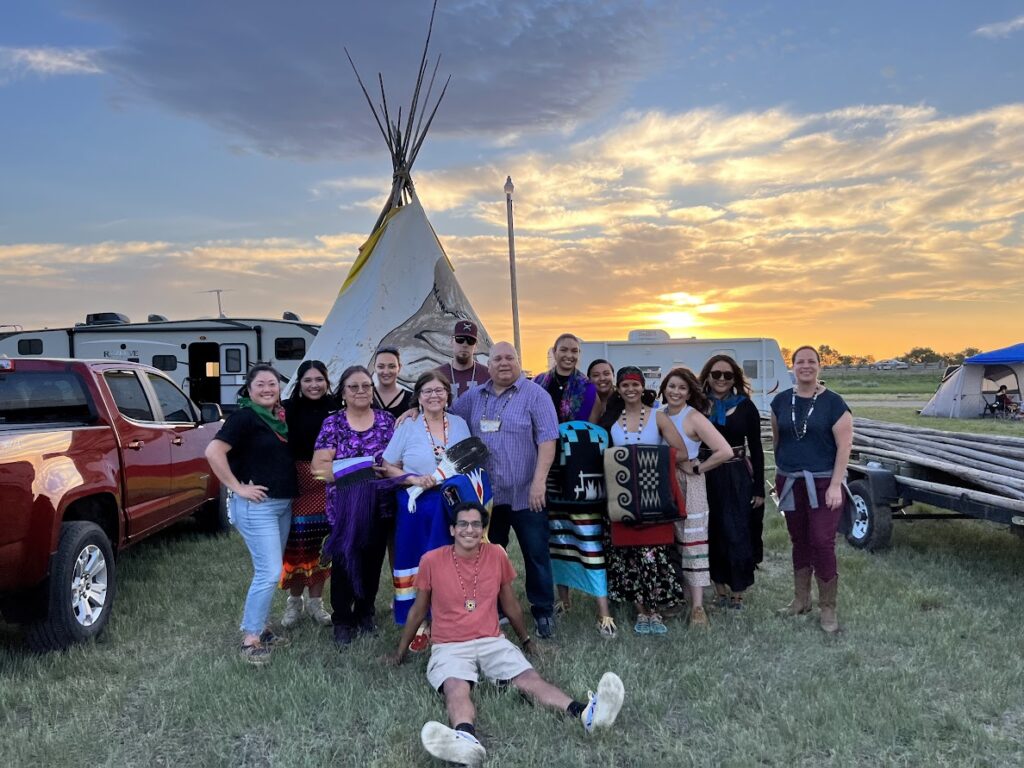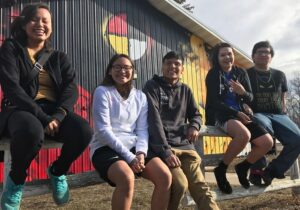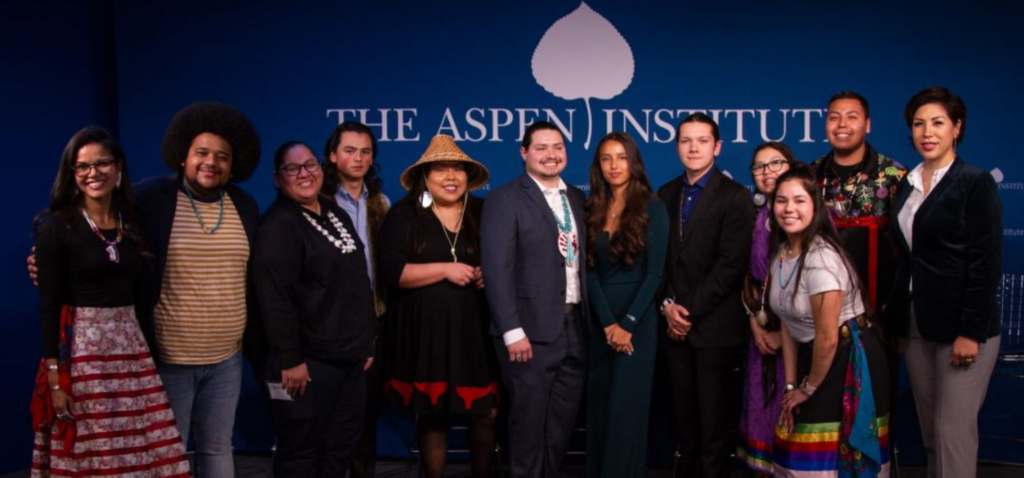Who Are We?
Founded in 2011, the Center for Native American Youth (CNAY) at the Aspen Institute is a national education and advocacy organization that works alongside Native youth — ages 24 and under — on reservations, in rural villages and urban spaces across the country to improve their health, safety and overall well-being.
All Native youth deserve to lead full and healthy lives, have equal access to opportunity, draw strength from their culture and inspire one another. At CNAY, we uplift youth through cross-sector, culturally-immersive programming that incorporates Indigenous knowledge systems, leadership training, and youth-led policy agenda and narratives.


OUR MISSION
Our mission at the Center for Native American Youth – as an education and advocacy organization – is to improve the health, safety, and overall well-being of Native American Youth.
OUR VISION
Rooted in culture, our vision is for all Native American youth to lead full and healthy lives, be honored for the leaders they are, and have resources and agency to create the world Native youth are worthy of and deserve.


